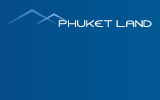Further Reading:
Indonesian Smog - Leaseholds Explained

An Italian considering investment in Phuket writes "ello, william, which is the situation to [phuket]? Here in [italy] the newses are very worrisome. The fire in the Borneo is creating notable complications. In the newspaper of today speak about the smoke that has arrived up to Phuket? You confirm me this news, and the Thailand authorities thing foresees for the future"
The much publicized fires in Sumatra, Borneo and lately Malaysia, are indeed having a serious short term impact on many parts of South East Asia and may have significant long term effects on the environment, health and economies of the effected countries.
Phuket has, as reported on the BBC and several other news organizations
been marginally effected. Over the last three weeks there have been
two or three noticeably hazy days. None of these days produced any noticeable
smell, indeed I had thought the hazes natural occurrences until I learned
of their source. The worst reading to date of Phuket’s Air Quality
Index has been 81 (where readings between 51 and 100 represent fair
air quality). In Kuala Lumpur, where health threatening Air Quality
readings of several hundred have been reported, and to a lesser extent
in the deep south of Thailand, they have not been so fortunate. It does
however appear that Phuket is too far removed from the fire sources
and the prevailing weather patterns to be effected in any significant
way.
Unless there is a substantial change for the worse in the wind or the weather, it looks as though Phuket is going to avoid this phenomenon. We have also been receiving rain nearly every day (which helps to clear up any particles that may be in the air) - and between the showers a good number of clear sunny days - and will probably continue to do so until the winds change to blow from the north-east during November bringing the dry weather, clear blue skies and sunshine associated with Phuket’s high season
The news of smog in Phuket has definitely resulted in a number of lost hotel bookings - these have however been partially made up by unscheduled arrivals from expat residents and tourists fleeing the bad conditions further south. Generally it would appear that there will be no significant long term impact on Phuket.
A gentleman from Spain, wonders - "I have looked at several properties in Phuket that are offered on either freehold or lease terms. Can you explain the difference. What are the typical lease values relative to sale price."
Here it is important to understand the difference between a lease and a leasehold term. A lease describes a term for which rent will be paid periodically (it might be monthly or annually) throughout the term, which is usually for a short or medium duration. A leasehold, which is typically a long term arrangement is a situation where the full rent for the entire period is prepaid in advance. The lease or sale term frequently offered in Phuket invariably refers to a very long leasehold term and will typically be for the same price as a freehold sale.
The situation arises primarily where a foreigner, who may not own freehold land in Thailand but may legally acquire long term leasehold rights, wants to buy land from a Thai vendor. The Leasehold is used as a mechanism to make it legal for a foreigner to effectively "acquire" land. To give an example, say a piece of land is for sale for 1,500,000 Baht. A foreigner wants to buy it; he can’t (unless he establishes a company locally with majority Thai ownership), so instead a lease is structured in the format of 30 years (the longest period which can be registered at one time) for say 500,000 Baht, and option to renew for two further terms of 30 years each, for which full payment in advance of one million (two times 500,000) Baht is paid as a deposit to secure the right to renew. Typically there will also be a clause that allows that in the event that the property is in the future sold to a Thai, or the law is amended to allows foreigners to own land, that a purchase option (in the value of the sum already deposited for the lease extensions) can be exercised. By this mechanism, a vendor receives the price he wants for a sale - and in exchange has granted almost perpetual rights to the buyer.
An alternate leasehold structure that is occasionally offered is for just thirty years or sixty years without further renewal options In this situation, you should expect to pay 50 to 60% of the sale value for a 30 year lease and from 65 to 75% of the sale value for two thirty year terms.


